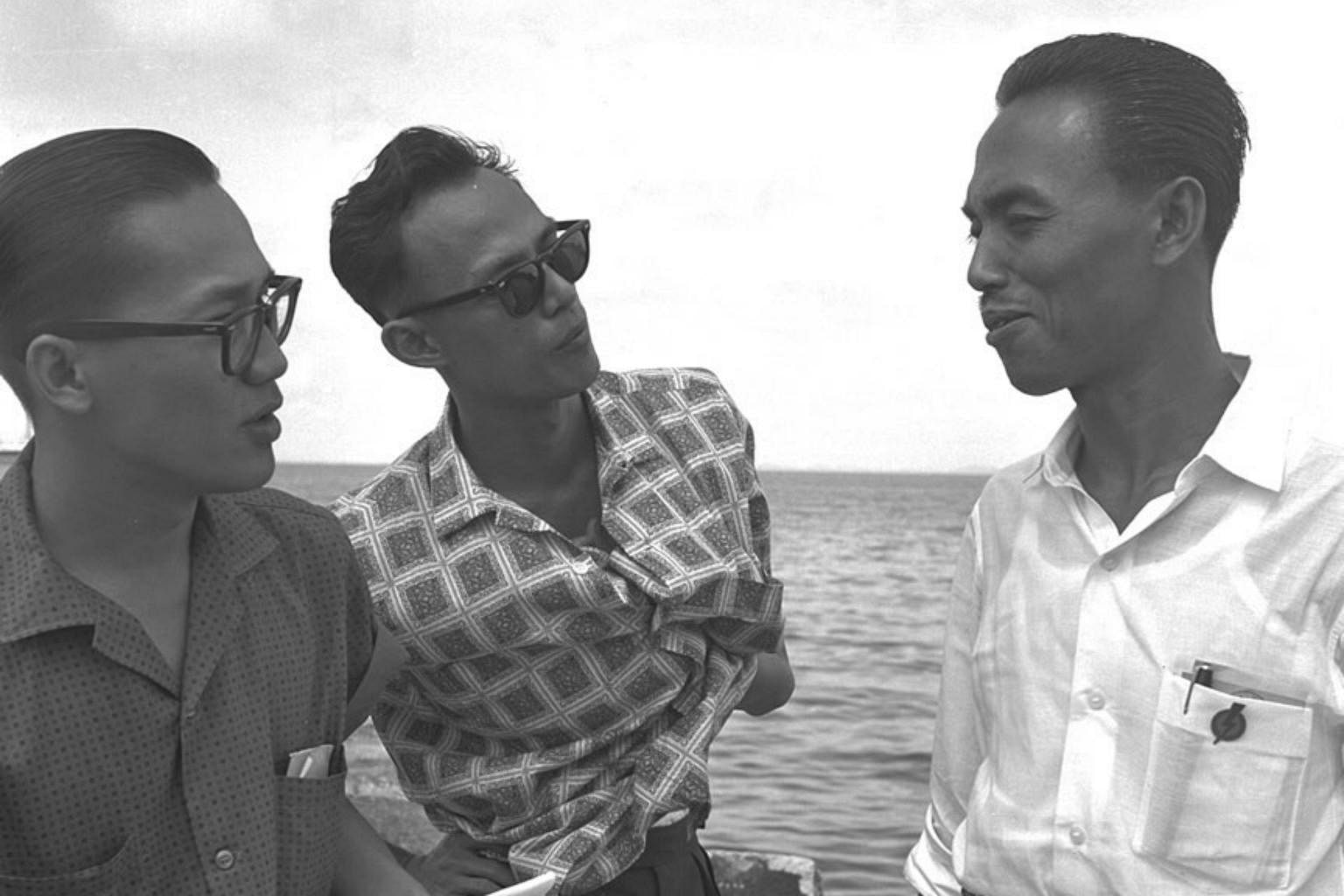NTUC leader and prominent unionist Mahmud Awang dies, aged 93
Sign up now: Get ST's newsletters delivered to your inbox
Follow topic:
SINGAPORE - Mr Mahmud Awang, one of the founders of the National Trades Union Congress (NTUC), and its first caretaker president, died on Monday (Jan 4).
He was 93.
Mr Mahmud, who was also a People's Action Party MP, was a prominent unionist who laid the foundations for Singapore's pragmatic approach to union issues and helped workers here improve their wages and working conditions.
Born in Kluang, Johor, in 1928, Mr Mahmud moved here during World War II as one of many young men compelled by the Japanese occupying forces to work at their naval school in Sembawang.
He went back to Kluang after the war but returned to Singapore to find work. He then joined the Singapore Traction Company, which ran buses, as a conductor.
It was there that Mr Mahmud became involved in union work. In 1955, he joined several other workers to lead a five-month strike by the company to protest against low wages.
Following a brief detention the year after by the colonial authorities, Mr Mahmud joined the United Malays National Organisation, or Umno, but left in 1959 as he felt party leaders were too chauvinistic towards other races.
But in that time, he had earned a reputation for his leadership skills and was elected the president of the Singapore Traction Company Employees' Union in 1958 - a post he was re-elected to for several years.
Mr Mahmud went on to become president of the Singapore Trade Union Congress (STUC) in 1960. The STUC brought various unions together but had a rival in the Singapore Association of Trade Unions (Satu), which was rife with communist elements.
Mr Mahmud and other union leaders decided that the workers had to be united under one flag and made the decision to disband STUC to form NTUC. He helmed it as the caretaker president, before Mr Ho See Beng became the first president.
Where Satu employed a more aggressive approach to union issues by continuing to organise protests and strikes, NTUC and Mr Mahmud opted for a more pragmatic approach by bringing cases to court.
"NTUC's approach proved successful and caused workers aligned with Satu to switch sides as they saw how continued striking did not improve their working conditions and even threatened their livelihoods," said NTUC on its website.
Not long after, PAP leaders convinced him to stand for election and despite some initial reluctance, he did.
When the MP for Anson, Mr Baharuddin Ariff, died in 1961, Cabinet minister Ahmad Ibrahim approached Mr Mahmud to stand as a candidate in the constituency. He agreed, and narrowly lost to former chief minister David Marshall by about 500 votes.
In 1963, he again stood for election to the legislative assembly in Kampong Kapor, and won the seat for the PAP. He served as an MP for the next five years, stepping down in 1968.

In a condolence letter to Mr Mahmud's son Endut on Tuesday, Prime Minister Lee Hsien Loong said Mr Mahmud was one of Singapore's founding leaders, and a stalwart in the fight against the communists.
"He belonged to the small group of unionists who held the line against the leftists, and eventually persuaded workers to cast their lot with the PAP," PM Lee said.
In the two years when Singapore was in Malaysia, Mr Mahmud was among the Malay PAP leaders who came under "fierce and relentless pressure" by Umno politicians to choose race over nation, PM Lee said.
"But Encik Mahmud and his comrades embraced the nobler dream and held firm in their conviction. Because of their courage and leadership, the vision of a multiracial Singapore was kept alive, and is today a reality."
Mr Lee Kuan Yew was forever grateful for Mr Mahmud's stout-hearted support at this critical moment in Singapore's history, and they kept in touch, PM Lee added.
"We were honoured that Encik Mahmud was one of the pallbearers at Mr Lee's funeral in 2015."
In a letter sent to Mr Mahmud's family and shared with the media on Tuesday, NTUC President Mary Liew and Secretary-General Ng Chee Meng said that the labour movement is saddened by his passing.
They noted that Mr Mahmud was an early champion of Singapore's unique tripartism approach, which has given the country its competitive edge.
"Without pioneer union leaders such as Brother Mahmud, Singapore would perhaps not be able to stand apart or even transform from third world to first," they said.
North West District Mayor and PAP executive director Alex Yam on Monday paid tribute to Mr Mahmud on Facebook, saying that he was lucky to have learnt from the latter's experience.
Mr Yam was a trade unionist with NTUC for seven years and still serves as adviser to its United Workers of Petroleum Industries union.
"I was privileged to have met Encik Mahmud on a number of occasions over the years and to have learnt from his vast experience," said Mr Yam.
"He was a first-hand witness to the tumult of our early years and was a key player in ensuring that Singapore stayed non-communist and non-communalist."


